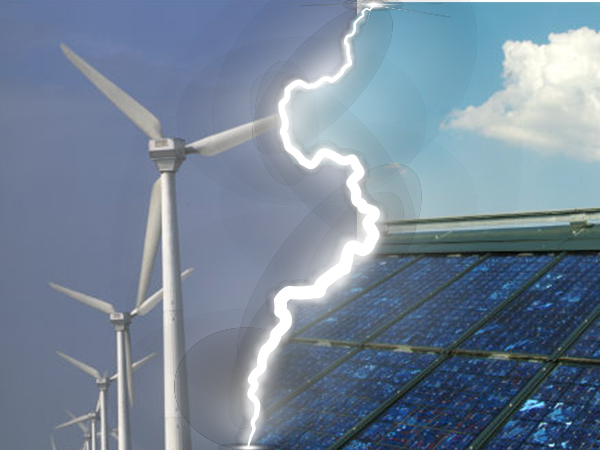22 November 2018
Technology-neutral call for tenders for renewables, not such a good idea


Last summer, the French government launched a call for tenders for 200 MW of wind or solar generation capacities in France. For the first time in France, projects on two different technologies were in competition in the same call for tenders. The results showed that such “experiment” should not be generalized.
While launching this call for tenders, the French government wanted to test a full-scale realisation calls for tenders leaning towards technological neutrality. Indeed, in the framework of the Clean Energy Package, the European Commission considered making mandatory this specific type of tenders. Following the opposition of many Member States, including France, it will still be possible to launch technology-specific tenders, as stated in the revision of the Renewable Energy Directive, adopted by the European Parliament on November 13th.
Several experiments: one single result
Technology-neutral call for tenders, in which several electricity generation technologies are competing on the sole criteria of the cost of production, has been tested in a few EU countries. The two most significant examples in France and Germany led to the same result: solar projects are the main winners, thus reflecting the sharp drop of costs in the solar sector. If we compare only new renewable energy projects on the cost of production, solar installations seem, for now, to be the most efficient.
However, does this comparison really make sense? As UFE has stated many times, if the cost of production criteria needs to be taken into account, it cannot be the only criteria. Many factors are not incorporated in the calculation of a levelized cost of electricity (LCOE). The controllability of the means of generation or the variability and seasonality of electricity generation are parameters that are not represented in the cost of production. It needs to be repeated: it is a misunderstanding of the functioning of the electricity system to hope for the best overall economic performance by choosing the means of production solely based on the cost of production. By pushing this logic to the extreme, an electricity mix obtained through technology-neutral tenders, leading in practise to develop only solar installations, would actually be very expensive because of the storage costs to add to compensate for a production entirely dependent on sunshine.
We must draw all the necessary consequences of this experiment!
The electricity mix of the coming years is currently being discussed in the framework of the Pluriannual Energy Programming (PPE), whose publication is expected in the coming weeks. While making its decision, the French government should carefully look at the multiple equilibriums involved in the trajectories for electricity generation mix. These equilibriums are technical, but the government should also take into account the industrial capacities of development for each sector, the socio-economic consequences, the cost for the whole community… The quality of a good electricity mix is assessed by the complementarity between sources and the capacity to go through difficult moments. Generation tools are not the only criteria to look at, we must assess every flexibility solution of the electricity system (networks, interconnections, demand-side response).
The PPE will set targets by sector to the final electricity mix. In order to achieve these targets, it will be crucial to remain in the current logic, namely to launch renewable technology-specific tenders as long as the observed levels of development are lower than the targets and in the interest of the overall system.
Other levers exist to minimize the cost of the energy transition
If technology-neutral tenders should be avoided, the objective to lower down costs for the consumer is obviously praiseworthy. One of the best solutions for this is to give visibility to industry, precisely thanks to a clear calendar of technology-specific tenders! Indeed, as the cost of capital is a very important part of the cost of renewable energy, the pluriannual commitments of the French State on capacities development are a key factor to bring down costs while fostering, within each technology, a healthy competition between the players in order to retain the most cost-efficient projects.
Other well-identified levers exist but there is still much to do, such as loosening administrative barriers. These obstacles, which sometimes highlight a lack of coherence between environment and energy policies, lead to increasing costs for projects, and ultimately for consumers who bear the cost through public funding support. The connection costs of renewable installations and grid reinforcement could also be largely optimized by extending the flexibility granted to conventional generation capacities to intermittent generation capacities.
Maintaining the possibility of technology-specific tenders was finally safeguarded in the Renewable Energy Directive, which should soon be ratified by the Council of the EU. But we should not think that this topic is closed for good. UFE remains involved in explaining and recalling the fundamentals of the electricity system and proposing the best means of actions for a smooth and cost-efficient development of renewable energy.
Find out more
02 June 2020
“Long live Europe”: it’s time for Europe!
25 February 2020
Brexit: love last 47 years


About us
The Union of the French Electricity Industry is the trade association of the French electricity sector. We bring together companies from the whole value chain of the electricity industry.
Find out more










